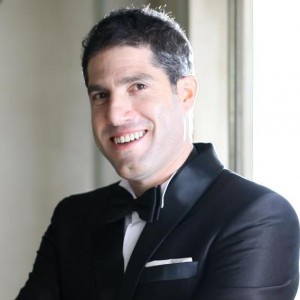 스타트업이 직접적으로 경쟁자를 갖는 건 매우 드문 사례입니다.
스타트업이 직접적으로 경쟁자를 갖는 건 매우 드문 사례입니다.
보통 이겨내야할 대상이 있다. 하지만, 사실 그들을 직접적인 의미로 경쟁자라 부를 순 없죠. 직접적 경쟁자란 당신과 똑같은 제품을 판매하는 누군가를 의미합니다. 허나 대부분 스타트업들은 새롭고 다른 제품을 세상에 내놓죠. 모든 이야기에는 악역이 존재하듯, 우리 스타트업에게도 `경쟁자`라 이름 붙일 누군가가 있을겁니다.
설마 그들이 당신과 직접적으로 경쟁하지 않더라도 말이죠. 스티브 잡스는 사업 초기에 IBM을 경쟁자로 삼았었고, 그 후 마이크로소프트, 구글, 그리고 최근의 삼성으로 대상을 바꿔왔습니다.
경쟁에 대해 우리가 가지는 감정이란 매우 강렬합니다. 경쟁자를 증오하거나, 좌절감을 느끼거나, 이기고 싶어하거나 때로는 질투하기도 합니다. 와이컴비네이터(Y-Combinator) 창립자 폴 그래햄(Paul Graham)씨는 스타트업이 경쟁으로 인해 사라지는 일은 절대 없다 했습니다. 맞는 말입니다.
왜냐하면 스타트업에게 도전이란 제품을 개발하고, 고객을 유치하여 돈을 버는 것이기 때문이죠. 이 도전은 그들에게 경쟁자가 있건 없건 상관없이 진행할 수 있습니다. 따라서 경쟁자라는 존재는 아무런 위협이 되지 않지요. 그러나 이 사실을 스타트업이 논리적으로 이해하고 있다 하더라도, 우리는 여전히 경쟁자를 신경쓰는데 많은 시간과 에너지를 쏟아붇습니다. 경쟁자를 상대하는 건 매우 좌절감을 주기 쉬운 일입니다.
설사 그들이 새로 내놓은 제품이 굉장한 것은 아닐까 두려워하지요. 만약 그들이 성공하면 이는 십중팔구 운이 좋아서 그런 것이고, 따라서 그들이 실패할 경우 그 것은 그들의 능력 탓이라 생각해 크게 놀라지도 않는 것입니다.
포브스 부자 순위 459위에 랭크된 연쇄창업자이자, NBA 팀인 댈러스 매버릭스(Dallas Mavericks)의 구단주이기도 한 마크 큐반(Mark Cuban)씨는 제가 여태껏 보아온 경쟁자를 상대하는 방법 중 가장 훌륭한 조언을 남겼습니다. 그는 세상에는 경쟁자를 이길 수 있는 몇 가지 방법이 있다 설명했습니다.
보통 우리는 경쟁자보다 마케팅이나 세일즈에서 자금적으로 뒤쳐지기 일쑤고, 새로운 제품을 개발하거나 눈에 확 띌만한 광고문구를 만드는 일은 매우 어렵기 때문에, 경쟁자가 누구던 간에 우리가 할 수 있는 유일한 행동은 `더 열심히 일하는 것`이라는 말이죠. 이 방법은 제가 경쟁자로부터 오는 좌절감에 맞서온 방법이기도 했습니다.
경쟁자가 새로운 제품을 내놓았다면? 단지 열심히 일하면 됩니다. 그들이 유명 잡지 1면을 장식했다면? 단지 더 열심히 일하면 되는 겁니다.
이 방법은 스스로의 마음가짐에 따른 것이기도 하겠지만, 좌절감을 극복하는데 도움을 줄 뿐만 아니라 장기적으로는 경쟁자와 싸워 이기는데 도움을 줄 수도 있을 것 입니다.
저는 피곤함을 느끼거나 직면한 어려운 문제가 해결할만한 일인가에 대해 의문이 들 때면, 저의 경쟁자들이 저를 자극시켰던 상황을 돌이켜보곤 합니다.
그럴 때면 다시 열심히 일하는 모드로 돌아오게 되곤하죠. “더 열심히가 아닌, 더 똑똑히 일하라”라는 말이 있지만, 사실 스타트업으로썬 둘 다 해야할 일들입니다.
똑똑히 일하기 위해선 가장 빠른 지름길을 찾으려 노력해야겠죠. 당신은 할 수 있지만 경쟁자들은 하고 있지 않은 것은 무엇인지? 더 저렴하거나 적은 자원으로 더 잘, 그리고 신속히 할 수 있는 것은 무엇인지? 이런 것들 말이죠. 똑똑하게 일하기에 대한 선택지가 있다면 그건 정말 좋은 일이겠습니다.
그러나 그렇지 않다면, 이제 당신이 해야할 일은 단지 더 열심히 일하는 것이 되겠지요.
How to deal with your competitor. It`s rare that startups have direct competitors.
Startups often have someone they are trying to beat; but that`s not really a `direct competitor`. A direct competitor is someone selling the same product as you. For most startups, the product is new and different.
But since every story needs a villain, we always have someone we see as a `competitor`, even if they don`t directly compete with us.
Steve Jobs saw IBM as a competitor (and later, Microsoft, then google and recently Samsung). Feelings towards the competition can be strong; we hate them, we are frustrated by them, we want to beat them, we sometimes envy them.
Paul Graham, founder of the famous “Y-Combinator” said that startups never get killed by competition. He is right ? the challenges startups have is building a product, getting customers, generating revenues. They can do it whether they have a competitor or not. It`s not going to be the competitor that will kill them.
But even if we know this logically, we still spend a lot of time and energy thinking and dealing with competitors. Dealing with competitors is frustrating. We are afraid that their next version will be amazing. We seem to think they are always lucky when they get things right (but we are not surprised when they get things wrong ? naturally, they are stupid and incapable).
Mark Cuban once wrote some of the best advice I read for dealing with competitors. For those who don`t know him ? Mark Cuban is a serial entrepreneur and #459 on Forbe`s list of “World`s richest people”. He also is the owner of the “Dallas Mavericks” NBA team, and a very interesting person.
Search for youtube videos where he shouts at the NBA referees during NBA games. Mark explains that there are limited ways to beat the competitor. Usually, we can`t spend more than them on marketing or sales.
It`s hard to invent a new product or to get splashy PR. But one thing we can always do, no matter who is our competitor, is work harder. For me, that has been the way to deal with frustration from competitors.
Did they just launch a new product? I will work harder. They got a front page article in an important magazine? I will work even harder.
This is one thing that is only up to us, and not only will it help with the feeling of frustration, but it will probably help beat the competitor in the long-term.
When I feel tired, exhausted or wondering if this hard work is worth it, I remember the last thing my competitor did that got me upset. This usually brings me back to working mood.
We often say “work smarter, not harder”, but you would actually need to do both. For working smarter, try to find the shortcuts: what is your competitor not doing that you can do? What can you do better, faster, with fewer resources or cheaper?
The option to work smarter is great if it exists. If not, you can always just work harder.
글 : 아비람 제닉(Aviram Jenik)
원문 : http://goo.gl/QwCu7m

